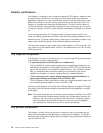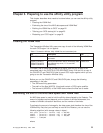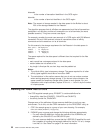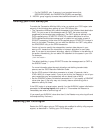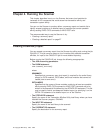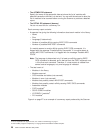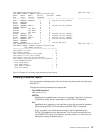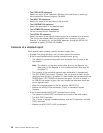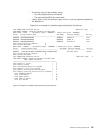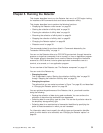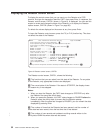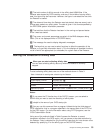
v The AFFMOD DD statement
Specify the name of the sequential data set where the list of modules with
potential transaction affinities is to be sent. You can edit the data set to alter the
list of modules to be scanned before running the Scanner to produce a detailed
report.
v The DETAIL DD statement (dummy)
You do not need this for a summary run.
Each summary report contains:
v A separate line giving the following information about each module in the library:
– Name
– Size
– Language (if determined)
– Number of possible affinity-causing EXEC CICS commands
– Number of possible MVS POST commands
If a module seems to contain affinity-causing EXEC CICS commands, it is
flagged with the message “Possible affinity commands”. If a module seems to
contain MVS POST commands, it is flagged with the message “Possible MVS
POSTs”.
Note: The language is determined only if at least one affinity-causing EXEC
CICS command is detected, and is derived from the EXEC argument zero
4
of the first such command. Therefore, if a load module is created from
several source languages, only one language is indicated.
v The total count of:
– Modules in the library
– Modules scanned
– CICS modules and tables (not scanned)
– Modules in error (not scanned)
– Modules that possibly contain MVS POST commands
– Modules that possibly contain affinity-causing EXEC CICS commands
– Assembler modules
– C/370 modules
5
– OS/VS COBOL modules
– VS COBOL II modules
5
– PL/I modules
5
Figure 4 on page 27 is an example of a summary report produced by the Scanner.
4. For an explanation of argument zero, see “Notes on terminology” on page x .
5. This includes programs compiled by a Language Environment®/370-enabled compiler.
26 CICS Transaction Affinities Utility Guide



